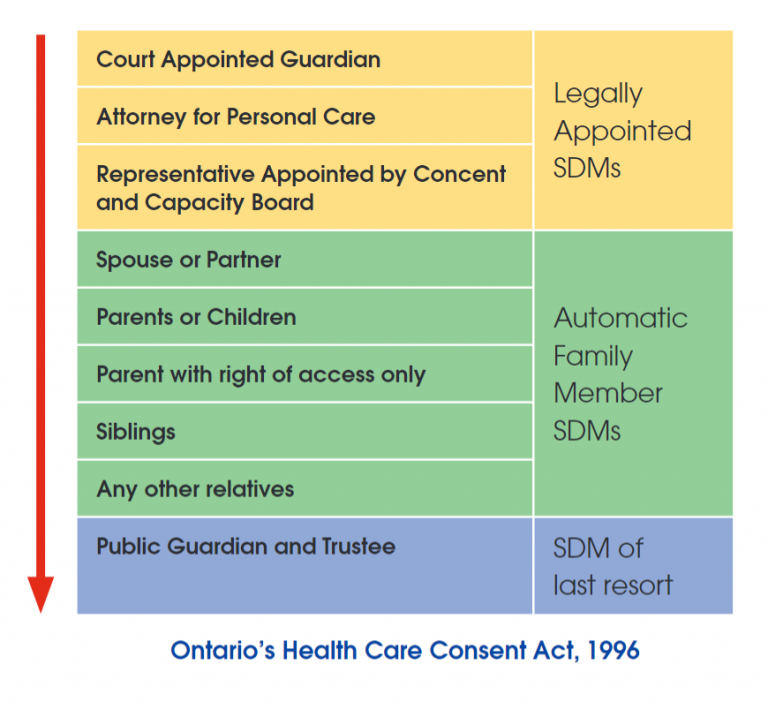Step 1. Identifying the Substitute Decision Maker
The first step is identifying the Substitute Decision Maker (SDM). In Ontario, if someone hasn’t specifically appointed a Substitute Decision Maker (SDM), then a family member would automatically become the SDM.
This is determined by a Substitute Decision Maker hierarchy, where the highest-ranking person is a spouse or partner, followed by:
- parents or children
- parent with a right of access only
- siblings
- any other relatives
You can keep a Substitute Decision Maker wallet card in case of an emergency. Be sure to share who your SDM is with a few key people, including the SDM, a close family member and your primary health care provider.
Requesting a different Substitute Decision Maker (optional)
If a person wants a different SDM(s) other than the default in the hierarchy, they must complete a document called Power of Attorney for Personal Care.
A Power of Attorney for personal care names a specific person or people as the Substitute Decision Maker(s).
You do not need a lawyer to prepare this document. A patient can do it on their own if they are mentally capable. However, it needs to be witnessed by two people.


Step 2. Conversations about values, wishes and beliefs
Advance care planning is about quality of life. Focus on living well, not dying. It is also a process that everyone, regardless of age or health status can engage in.
Your wishes can be shared orally, written down, or recorded on audio or video. It can be helpful for the Substitute Decision Maker to have a record of the conversation to return to, if needed.
If you’re supporting a person who can no longer participate in their healthcare decisions, talk with the patient’s family and friends about what they know about the person’s values, wishes and beliefs, and how this might guide personal care decisions.
“2/3 of patients have not spoken with their families about what's most important to them. ”

